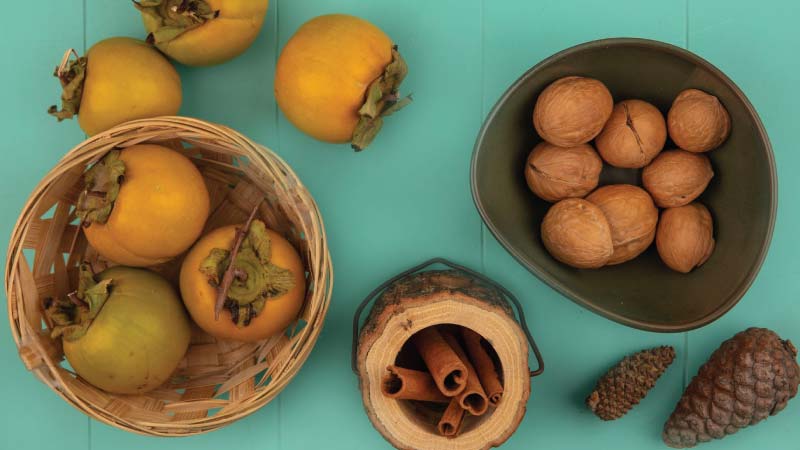How Long Do Frozen Fruits and Vegetables Last?
- 12 months ago
We’ve all been there—you buy many fresh fruits and vegetables, fully intending to use them, only to find them wilting or overripe in the fridge a few days later. Life gets hectic, and sometimes it’s hard to keep up with fresh produce before it spoils. That’s where freezing comes in handy. Freezing fruits and vegetables allows you to preserve their freshness, nutrients, and flavor for much longer, saving you time, money, and food waste.
Think about those perfectly ripe strawberries you bought in bulk or the spinach you planned to use for smoothies. If you can't finish them in time, freezing them gives you the flexibility to enjoy them later without the pressure of a ticking expiration date. Not only is it convenient, but it also means you'll always have healthy ingredients ready when you need them.
Why Freeze Fruits and Vegetables?
Freezing fruits and vegetables is one of the most efficient ways to preserve their freshness without adding preservatives or reducing nutritional value. Here are some reasons to freeze fruits and vegetables:
- Nutrient Retention: Freezing preserves most of the vitamins and minerals in fruits and vegetables, maintaining their nutritional content.
- Reduce Waste: Instead of letting extra fruits and vegetables spoil, freezing them gives you more time to use them.
- Save Money: Buying in bulk or when fruits and vegetables are in season is often cheaper. You can freeze the surplus and enjoy them later, even when they're out of season.
- Convenience: Prepping frozen fruits and vegetables makes cooking easier and faster, perfect for smoothies, soups, and quick meals.
Fruits And Vegetables You Should Always Refrigerate—And You Shouldn't
How Long Do Frozen Fruits and Vegetables Last?
Frozen fruits and vegetables can last for different lengths of time depending on the type of food and how they're stored. Generally, they stay good for 8 to 12 months in a well-regulated freezer, but the best quality is usually retained within the first few months.
- Frozen Fruits: Up to 8–12 months. Citrus fruits and berries generally retain better quality than softer fruits like peaches or melons.
- Frozen Vegetables: Up to 10–12 months. Vegetables like broccoli, spinach, and carrots freeze well, but leafy greens and tomatoes may lose texture over time.
It's important to remember that while frozen fruits and vegetables are safe to eat indefinitely (as long as they stay frozen), the texture and flavor can degrade after 12 months.
Freezing is a good technique of storage for long duration but fresh seasonal produce is best to be consumed in the fresh form rather than frozen

How to Freeze Fruits and Vegetables at Home: Instructions
Freezing fruits and vegetables at home is a simple and effective way to preserve your produce for longer use. Whether you want to avoid waste or enjoy seasonal produce throughout the year, freezing is a practical solution. Here’s a step-by-step guide to help you freeze both fruits and vegetables properly.
1. Select Fresh Produce
Opt for fruits and vegetables that are fresh, ripe (but not overripe), and free from blemishes. Ideal fruits for freezing include berries, bananas, peaches, and pineapples. For vegetables, broccoli, carrots, peas, and green beans are great choices.
2. Wash and Prep
- Fruits: Wash the fruits thoroughly under cold water. Remove pits, stems, or peels as necessary (e.g., peel bananas, core apples). Slice or chop larger fruits like peaches or pineapples.
- Vegetables: Wash the vegetables thoroughly, then peel and chop them into bite-sized pieces if needed (e.g., chop carrots, trim beans).
3. Blanching Vegetables (Skip for Fruits)
Blanching is essential for most vegetables, as it helps maintain color, texture, and nutrients by stopping enzyme activity.
- Boil a large pot of water.
- Add the vegetables and blanch them for 2-3 minutes, depending on the vegetable.
- Quickly transfer them to a bowl of ice water to cool for the same time.
- Drain and dry the vegetables thoroughly with a clean towel.
4. Pre-Freeze (Optional)
This step is more useful for fruits, but it can also be applied to vegetables for better texture:
- Spread fruit or vegetable pieces on a baking sheet in a single layer and freeze them for 1–2 hours.
5. Pack and Seal
Once pre-frozen (or blanched and dried, in the case of vegetables), pack the fruits and vegetables into freezer-safe bags or containers:
- Remove as much air from the bags as you can to avoid freezer burn.
- Mark the bags with the freezing date for quick and convenient reference.
6. Freeze
Place the sealed bags or containers in the freezer, ensuring they’re not overcrowded to allow for optimal airflow. Frozen fruits and vegetables can last for 8–12 months in the freezer.
How to Tell If Frozen Fruits and Vegetables Have Gone Bad?
Although frozen fruits and vegetables can last a long time, it’s essential to know the signs of spoilage. Here are a few indicators:
- Freezer Burn: Grayish-brown spots or ice crystals form when the fruit or vegetable has been exposed to air. While freezer-burned produce is safe to eat, it may have an unpleasant taste or texture.
- Mushy or Discolored: If the fruits or vegetables become excessively mushy or have unusual discoloration, they may have been thawed and refrozen or stored too long.
- Odd Odor: If the food has a strange or off smell when thawed, it is best to discard it.
Also Check: Fruits And Vegetables You Should Peel—And You Shouldn't Peel
Common Myths About Freezing Fruits and Vegetables: Debunked
There are many misconceptions about frozen fruits and vegetables. Let’s debunk a few:
Myth 1: Frozen Fruits and Vegetables Lose Their Nutrients
Fact: Freezing helps retain the nutritional value of fruits and vegetables. Some studies show that frozen produce can be as nutrient-rich as fresh options, sometimes even better since they are frozen shortly after harvesting.
Myth 2: Freezing Kills Bacteria and Parasites
Fact: Freezing does not kill bacteria or parasites; it only halts their growth. Proper washing, blanching, and storage are essential to ensure the food remains safe.
Myth 3: Once Thawed, Frozen Vegetables Can't Be Refrozen
Fact: While it’s true that refreezing thawed vegetables may impact their texture, they are still safe to refreeze if kept cold and handled properly. Just keep in mind that the quality may diminish with each cycle of freezing and thawing.
Myth 4: All Fruits and Vegetables Freeze Well
Fact: Not all produce freezes equally. High-water-content fruits and vegetables, like cucumbers, lettuce, or watermelon, may become mushy when thawed.
Also check: Best nutritious fruits you should have in breakfast
Conclusion
Freezing fruits and vegetables is an excellent method to extend their shelf life, reduce waste, and save money. When frozen properly, most fruits and vegetables can last 8–12 months in your freezer, maintaining their nutritional value and quality. By following the right techniques and keeping an eye out for spoilage signs, you can enjoy the benefits of frozen produce all year long. Plus, debunking common myths will help you make more informed choices about freezing your food.









